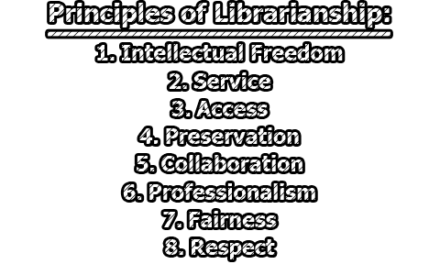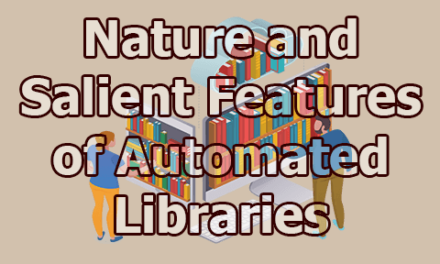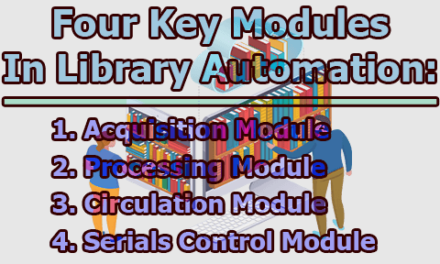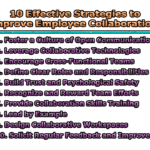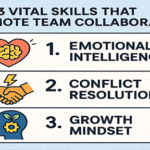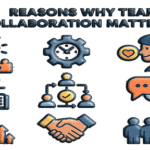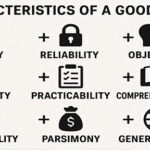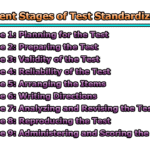Role of Libraries in Promoting Information Literacy and Critical Thinking Skills in the Digital Age:
In the ever-evolving digital age, where the flood of information and the complexities of the online world can be overwhelming, libraries stand as unwavering pillars of knowledge and enlightenment. Their role extends far beyond being repositories of books; libraries serve as dynamic hubs for fostering information literacy and critical thinking skills. In a world saturated with information, where misinformation and unreliable sources proliferate, libraries have embraced the responsibility of guiding individuals through the labyrinth of digital content. They provide invaluable resources, education, and support, empowering patrons of all ages to discern fact from fiction, navigate the digital realm with confidence, and engage in critical inquiry. In this comprehensive article, we will explore the role of libraries in promoting information literacy and critical thinking skills in the digital age:
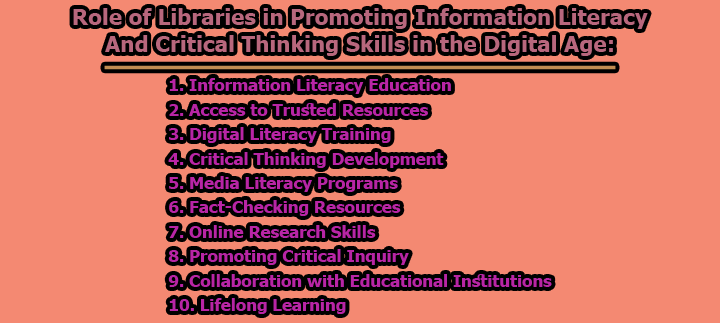
1. Information Literacy Education: Libraries serve as dedicated spaces for information literacy education. They offer a wide range of resources and programs to equip patrons with essential skills for navigating the digital age effectively.
a. Workshops and Seminars: Libraries organize workshops and seminars that cover topics such as effective search strategies, evaluating online information, and citing sources. These hands-on sessions provide practical guidance, helping individuals become proficient in finding and utilizing information.
b. One-on-One Guidance: Librarians are valuable resources themselves. They offer one-on-one guidance, helping patrons with personalized assistance in research, source evaluation, and information organization. This personalized approach ensures that individuals receive tailored support based on their specific needs and skill levels.
c. Digital Literacy Instruction: Information literacy education extends to digital literacy. Libraries teach patrons how to use various digital tools and technologies, from using online databases to creating and managing digital content. This instruction empowers users to harness technology effectively and ethically.
d. Curation of Learning Materials: Libraries curate collections of books, e-books, articles, and online tutorials related to information literacy. These resources are readily accessible to patrons, facilitating self-guided learning and enabling them to deepen their knowledge and skills independently.
e. Critical Evaluation of Information: Information literacy education goes beyond finding data; it also emphasizes critical thinking. Libraries encourage patrons to critically assess sources, teaching them to recognize bias, misinformation, and the importance of evidence-based information. This critical evaluation skill is crucial in today’s information-rich but often misleading digital environment.
2. Access to Trusted Resources: Libraries are trusted guardians of reliable information sources, which is especially valuable in an era inundated with unverified information.
a. Curation of Collections: Libraries meticulously curate both physical and digital collections, ensuring that they contain authoritative books, journals, magazines, and online resources. These collections cover a wide range of subjects, making them valuable repositories of knowledge.
b. Online Databases: Libraries provide access to online databases encompassing academic journals, research articles, and reference materials. These databases are valuable for academic research, professional development, and fact-checking, as they contain peer-reviewed and credible content.
c. Fact-Checking Tools: Libraries often offer access to fact-checking resources and websites. Patrons can utilize these tools to verify the accuracy of claims made in news articles, social media, and other sources. By promoting fact-checking, libraries contribute to a more informed and discerning society.
d. Guidance in Source Selection: Librarians assist patrons in selecting the most appropriate and reliable sources for their research. This guidance ensures that individuals base their decisions on credible information, fostering better decision-making and reducing the spread of false information.
e. Promotion of Citation Practices: Libraries emphasize the importance of proper citation and referencing. They provide resources and guides on citation styles, helping individuals give credit to original sources and maintain academic integrity.
3. Digital Literacy Training: Given the pervasive role of technology in daily life, libraries offer digital literacy training programs to ensure that individuals can navigate the digital landscape safely and competently.
a. Online Privacy and Cybersecurity: Libraries educate patrons about online privacy best practices and cybersecurity measures. This training includes topics like creating strong passwords, avoiding phishing scams, and safeguarding personal information online.
b. Responsible Social Media Use: Recognizing the significance of social media, libraries offer guidance on responsible social media use. Patrons learn how to critically assess information encountered on social platforms and engage in respectful and constructive online discussions.
c. Digital Tools and Software: Libraries provide access to and training on various digital tools and software applications. This empowers individuals with skills needed for tasks like creating digital presentations, data analysis, and content creation.
d. Adaptive Learning: Libraries adapt their digital literacy training to cater to various age groups and skill levels. Programs are designed to be accessible to children, seniors, and everyone in between, ensuring that no one is left behind in the digital age.
e. Ethical Considerations: Libraries emphasize the ethical dimension of digital literacy, teaching users about the responsible use of technology, intellectual property rights, and the potential consequences of online actions.
4. Critical Thinking Development: Libraries play a pivotal role in nurturing critical thinking skills, which are essential for discerning and evaluating information effectively.
a. Resource Materials: Libraries provide books, articles, and online resources that promote critical thinking. These materials cover topics such as logical reasoning, argumentation, and cognitive biases, allowing patrons to explore the subject in depth.
b. Guided Discussions: Many libraries host discussion groups, book clubs, and debate sessions. These forums encourage patrons to engage in thoughtful dialogue, explore different viewpoints, and practice critical analysis.
c. Evaluating Credibility: Libraries teach individuals to critically assess the credibility of sources, encouraging them to question the author’s qualifications, potential bias, and the evidence presented in various materials.
d. Recognizing Logical Fallacies: Patrons learn to identify common logical fallacies, which are errors in reasoning. By recognizing fallacies, individuals can more effectively evaluate arguments and make informed decisions.
e. Ethical Considerations: Libraries promote ethical thinking by encouraging patrons to consider the ethical implications of the information they encounter and the actions they take based on that information.
5. Media Literacy Programs: In the era of digital media, libraries offer programs that help individuals navigate the complex world of media messages and information sources.
a. Deconstructing Media Content: Patrons learn how to deconstruct media content, breaking down news articles, videos, and advertisements to understand their underlying messages, motivations, and potential biases.
b. Fact vs. Opinion: Libraries teach individuals to distinguish between factual information and opinion in media. This skill is essential for making informed decisions and avoiding the spread of misinformation.
c. Recognizing Bias: Patrons are trained to recognize bias in media reporting and content. Understanding the influence of bias is crucial for consuming media critically and drawing well-informed conclusions.
d. Media Literacy Tools: Libraries provide access to tools and resources that aid in media analysis, such as guides on media literacy, critical media literacy websites, and fact-checking organizations.
e. Discussion and Analysis: Libraries encourage patrons to engage in discussions and analyses of media content. By doing so, individuals become more active and discerning consumers of news and entertainment media.
6. Fact-Checking Resources: Libraries often provide access to fact-checking resources and organizations, reinforcing the importance of accuracy and accountability in the digital realm.
a. Fact-Checking Tools: Libraries offer access to reputable fact-checking websites and databases. These tools allow individuals to verify the accuracy of claims, news stories, and information they encounter online, helping to combat the spread of false information.
b. Training in Fact-Checking: Many libraries conduct workshops and seminars on fact-checking techniques. These sessions teach patrons how to critically assess information, cross-reference sources, and distinguish between reliable information and misinformation.
c. Promotion of Fact-Checking Culture: Libraries play a role in promoting a culture of fact-checking and critical inquiry. By providing fact-checking resources and advocating for their use, libraries contribute to a more informed and discerning society.
d. Enhancing Media Literacy: Fact-checking is an integral part of media literacy. Libraries integrate fact-checking into their media literacy programs, teaching individuals how to apply these skills to news articles, social media posts, and other forms of media content.
e. Accountability and Trustworthiness: Access to fact-checking resources helps individuals hold media outlets, public figures, and online sources accountable for disseminating accurate information. This encourages greater transparency and trustworthiness in digital communication.
7. Online Research Skills: Navigating the vast landscape of online information effectively requires specific skills, and libraries are instrumental in teaching these skills.
a. Effective Search Techniques: Libraries instruct patrons in constructing precise search queries, utilizing advanced search operators, and leveraging online search engines. These techniques enable individuals to locate information efficiently and with precision.
b. Utilizing Online Databases: Libraries offer guidance on navigating online databases, academic repositories, and digital libraries. These resources are invaluable for research and academic purposes, and patrons learn how to access and extract relevant information from these sources.
c. Source Evaluation Online: Beyond traditional source evaluation, libraries educate users on how to evaluate the credibility of online sources. Patrons learn to identify the reliability of websites, blogs, and online publications, reducing the risk of falling for misinformation.
d. Citation and Copyright: Libraries emphasize the importance of proper citation and adherence to copyright laws in the digital age. Individuals are educated on how to give proper credit to authors and creators while respecting intellectual property rights.
e. Information Organization: Libraries teach patrons effective methods for organizing and managing digital information, including note-taking, citation management tools, and digital research strategies. These skills enhance productivity and research efficiency.
8. Promoting Critical Inquiry: Libraries actively promote a culture of critical inquiry by providing access to diverse materials and fostering open dialogue.
a. Diverse Perspectives: Libraries curate collections that encompass a wide range of perspectives, ideologies, and viewpoints. This diversity encourages patrons to explore differing opinions and engage in critical thinking and analysis.
b. Public Forums: Libraries often serve as venues for book discussions, debates, and public lectures. These forums provide opportunities for patrons to engage in open dialogue, express their views, and challenge their own and others’ perspectives.
c. Freedom of Information: Libraries uphold principles of intellectual freedom and open access to information. Patrons are encouraged to explore topics without censorship or bias, promoting the development of well-rounded critical thinking skills.
d. Encouraging Questioning: Libraries encourage patrons to question information and assumptions, fostering a healthy skepticism that is crucial for evaluating information in the digital age. Questioning leads to deeper understanding and better decision-making.
e. Research Support: Libraries offer research support services, guiding individuals through the research process. This support includes assistance with formulating research questions, conducting literature reviews, and developing critical arguments.
9. Collaboration with Educational Institutions: Libraries often collaborate closely with educational institutions, ensuring that information literacy and critical thinking instruction are integrated into curricula at all educational levels.
a. Integration into Curriculum: Libraries work with schools, colleges, and universities to embed information literacy and critical thinking skills into the curriculum. This integration ensures that students receive essential skills training from an early age and continue to develop these skills throughout their educational journey.
b. Librarian-Faculty Partnerships: Librarians collaborate with educators to design assignments and projects that promote information literacy. They provide support to faculty in developing effective teaching strategies related to research and critical thinking.
c. Library Workshops and Sessions: Libraries offer workshops, training sessions, and library orientations tailored to the needs of educational institutions. These sessions equip students with research skills and prepare them for academic success.
d. Digital Learning Resources: Libraries create and maintain digital learning resources, including online tutorials, research guides, and instructional videos, which are accessible to students and educators alike.
e. Assessment and Continuous Improvement: Libraries work with educational institutions to assess the effectiveness of information literacy and critical thinking programs. This ongoing assessment ensures that instruction remains relevant and impactful.
10. Lifelong Learning: Libraries recognize that information literacy and critical thinking are lifelong skills, and they provide resources and programs to support continuous learning for individuals of all ages.
a. Children and Teens: Libraries offer age-appropriate programs and resources to teach children and teens how to evaluate online sources, navigate digital media responsibly, and develop critical thinking skills.
b. Adult Learning: For adults, libraries provide workshops and courses that enhance research skills for personal and professional growth. These programs address the specific needs of adults in the workforce or pursuing further education.
c. Senior Citizens: Libraries cater to senior citizens by offering digital literacy and information literacy programs designed to bridge the digital divide, ensuring that older individuals can access information and services online.
d. Community Engagement: Libraries actively engage with their communities by hosting events, discussion groups, and lectures that promote lifelong learning and critical inquiry. These events facilitate continuous intellectual growth for community members.
e. Accessible Resources: Libraries make resources accessible to individuals with varying abilities, ensuring that everyone has the opportunity to develop information literacy and critical thinking skills regardless of their background or physical challenges.
In conclusion, libraries play a crucial role in helping people become smarter and more aware in today’s digital world. They’re not just places for books; they’re like helpful guides. They teach us how to find good information on the internet, how to be safe online, and how to think critically. They also show us how to check if something we read online is true or not. Libraries are like friendly experts who make sure we’re not tricked by false information and help us become better at understanding the digital world. So, libraries are important because they help us become smarter and more confident in this age of lots of information on the internet.
References:
- American Library Association. (2017). Information Literacy Competency Standards for Higher Education. Retrieved from http://www.ala.org/acrl/standards/informationliteracycompetency
- Breivik, P. S., & Gee, E. G. (2006). Information Literacy: Revolution or Evolution? College & Research Libraries, 67(2), 178-196.
- Charbonneau, D. H., & McGowan, B. S. (2014). Public Library Reference Services in the Digital Age: A Content Analysis. The Reference Librarian, 55(3), 229-241.
- Gratch-Lindauer, B. (2009). Beyond Google: A Roadmap to Digital Literacy. Library Technology Reports, 45(8), 21-27.
- Hobbs, R. (2010). Digital and Media Literacy: A Plan of Action. Washington, DC: The Aspen Institute.
- Julien, H., Gross, J., & Latham, D. (2016). Information Literacy Instruction for Digital Natives: A Modern Approach to Library Instruction. Oxford: Chandos Publishing.
- Loertscher, D. V., & Woolls, B. (2017). The New Learning Commons Where Learners Win! Salt Lake City, UT: Hi Willow Research and Publishing.
- National Association for Media Literacy Education. (2019). Core Principles of Media Literacy Education in the United States. Retrieved from https://namle.net/publications/core-principles/
- Saranto, K., & Hurd, J. (2016). Information Literacy Instruction: Theory and Practice. Oxford: Chandos Publishing.

Assistant Teacher at Zinzira Pir Mohammad Pilot School and College

